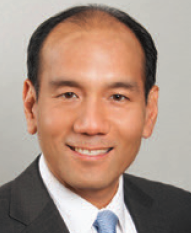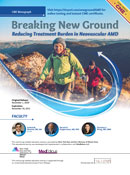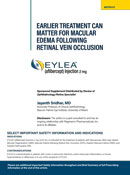2020 has been filled with many things, uncertainty being the common denominator. Masks, respirators, lockdowns, home-learning, time to a COVID-19 vaccine and herd immunity, the economy, social injustice and the election, to name a few.
Enveloped with uncertainty, we often think unrealistically about outcomes, projecting catastrophically. We overestimate the negative impact an event will have on our happiness. Fortunately, the science of “affective forecasting” assures us that we're poor judges of our future emotions and the impact of specific events on them.
Uncertainties also run rampant through our retina clinics. Which proliferative diabetic retinopathy patient will be noncompliant and go needlessly blind? Which injection patient will develop endophthalmitis? Which patient on hydroxychloroquine will develop irreversible retinal toxicity? (See page 34.) Which retinal detachment patient will develop proliferative vitreoretinopathy and re-detach? Which large macular hole will need an advanced surgical technique for successful closure? (See page 18.)
The stress that so readily accompanies chronic uncertainty can slowly erode the quality of our lives. It’s easy to ignore these stresses. It’s human nature to think everybody else is stressed while I’m just fine, thank you.
We can’t change the magnitude of the external, unpredictable uncertainties that cascade into our lives, nor the rate at which they emerge onto our landscapes. But we can control our approach to dealing with them.
First, we can recognize the uncertainties and associated stresses as real. Acknowledge and validate rather than deny and ignore.
Second, we can carve out time daily for personally meaningful activities that we control. Go for a walk, connect with friends and family, meditate, exercise, show appreciation, disconnect from Facebook and social media.
Third, and maybe most difficult, consider mentally reframing the situation. Winston Churchill said, “Never let a good crisis go to waste,” at the founding of the United Nations in the aftermath of World War II. See page 41 where Dr. Andrew Schimel tells an incredible family tale from that era and gives concrete approaches to improving our quality of life today.
Yes it can be overwhelming. But someday we’ll look back on this and tell our kids and grandkids the story of this unique moment in history. We have the privilege of living through these challenging times, and inherent with that comes the responsibility to support ourselves and those around us as we overcome one uncertainty after another. RS
 |




